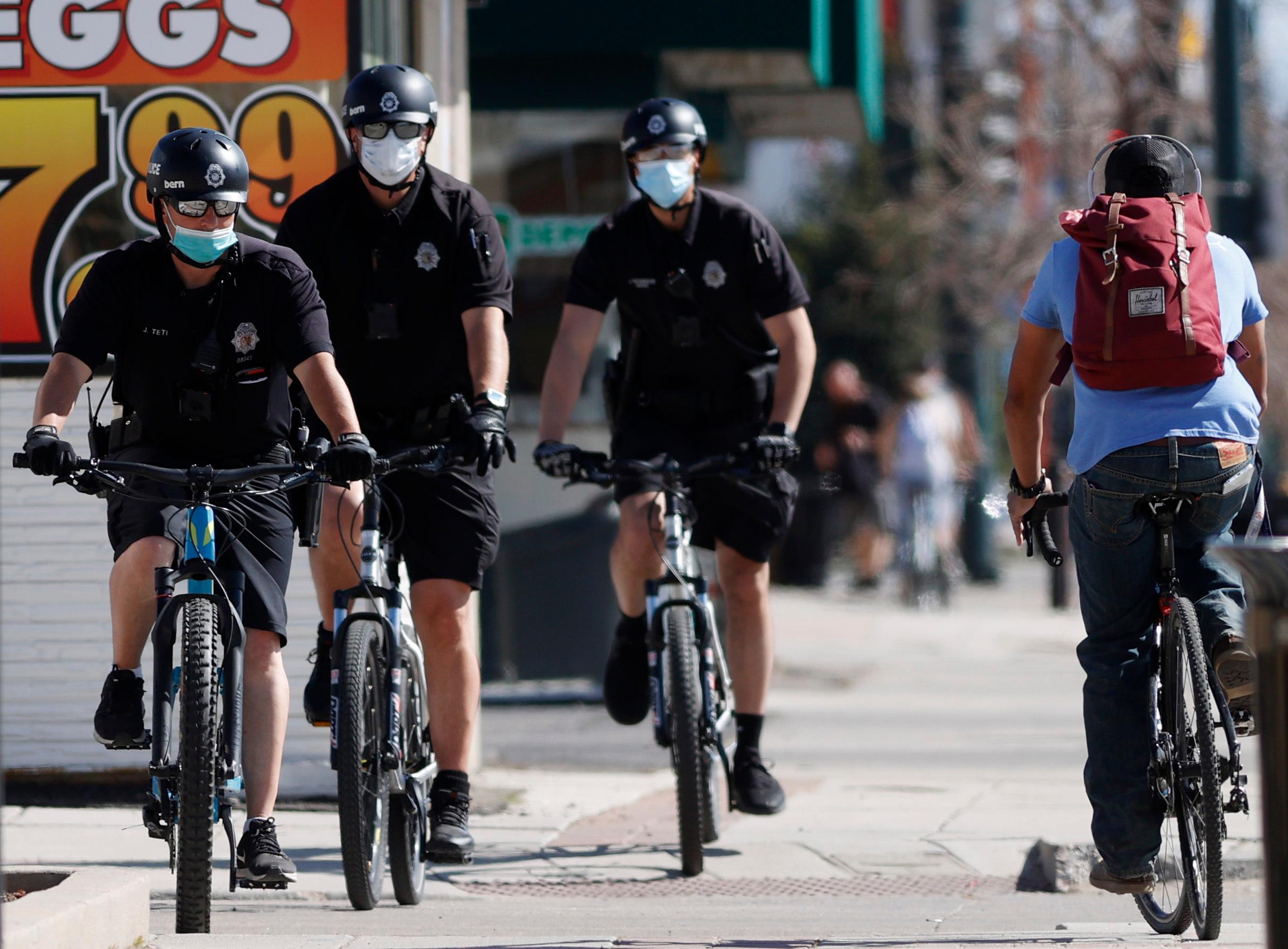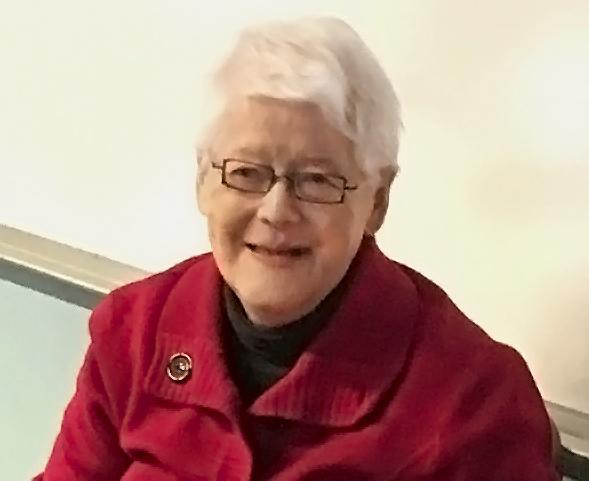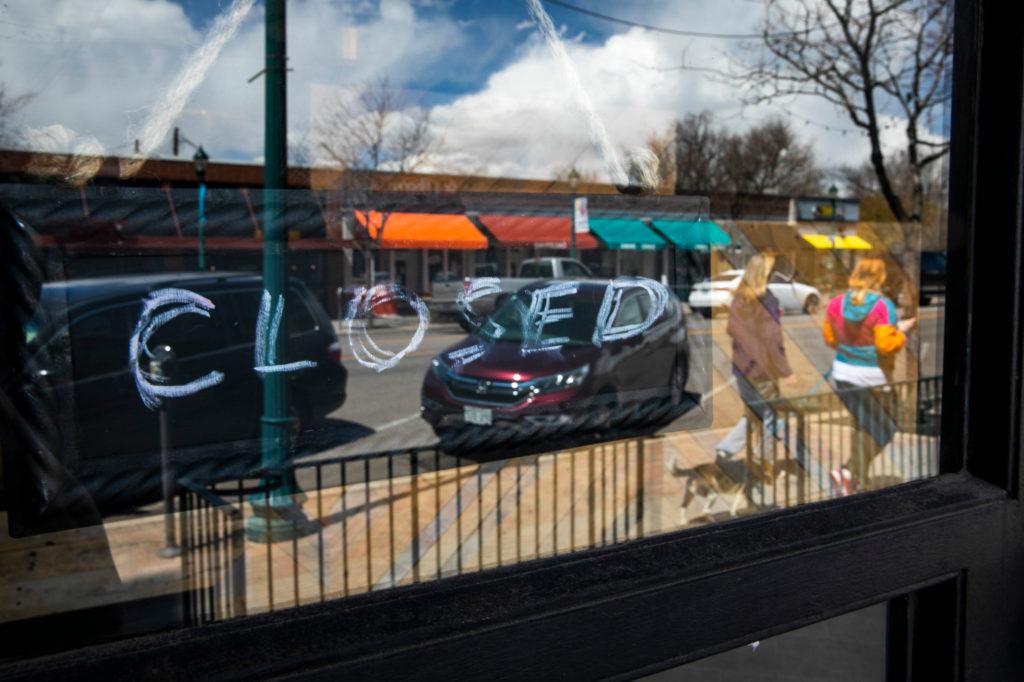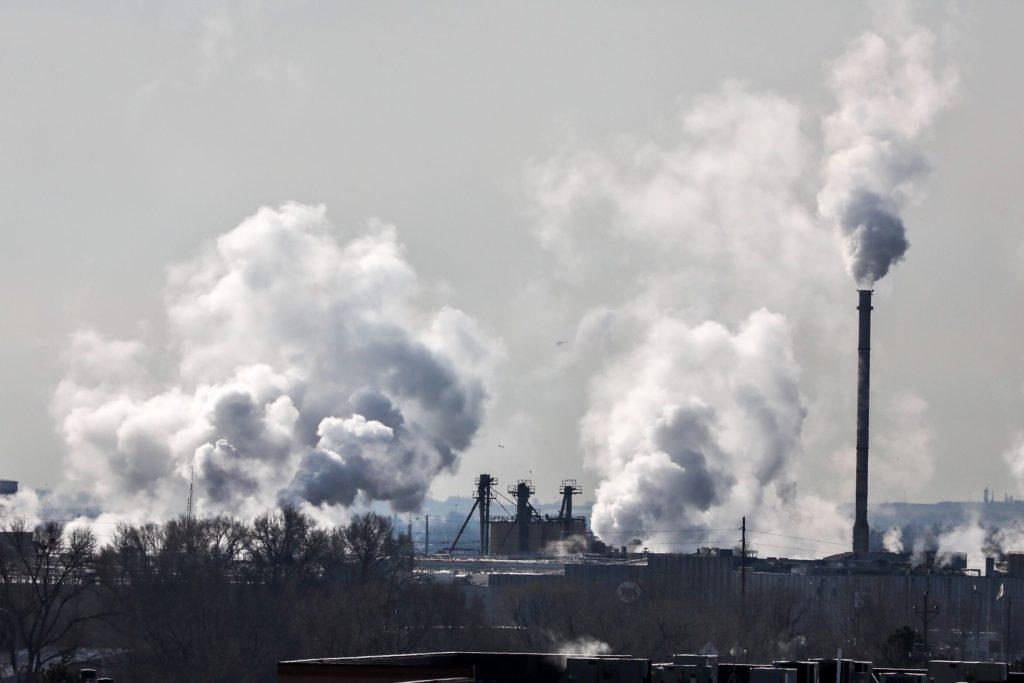
This post collects all of our updates and reporting on the coronavirus in Colorado for Thursday, April 14, 2020. You can find the latest for Friday here. Our original play-by-play of reporting continues below.
8:23 p.m. — Social distancing makes Ramadan different this year
Despite some businesses reopening Monday as part of Colorado’s “safer-at-home” phase, no changes have been made for houses of worship.
“Gatherings of more than 10 people will not be permitted and that applies to religious institutions,” a spokeswoman with Gov. Jared Polis’ office said. “They should continue operating as they were under the stay-at-home phase.”
Many of the same recommendations that were given during the stay-at-home order are in place during the next phase of Colorado’s response to COVID-19. People should still wear a mask, wash their hands and shouldn’t leave their homes unless absolutely necessary.
Imam Muhammad Kolila of the Downtown Denver Islamic Center said sermons have been canceled since March 16. He said it’s been difficult for Muslims, especially those who are immigrants or may not speak a lot of English. For them, the mosque was their main means of social connection.
“A lot of people feel disconnected and isolated and that’s one of the hardest things about this,” he said. “The mosque is playing a really significant role in that sense of belonging and coping with life here.”
Kolila said he has moved lectures and other educational opportunities online to help but even that is a challenge because not everybody has access to technology. In some cases, a phone call has been the best way for maintaining the connection to the community.
Last week Kolila performed a marriage ceremony with just five people at the mosque. He said even if people can’t attend services at a mosque, they should still keep up with their faith and that God will see their intentions.
— Hayley Sanchez
8:21 p.m. — The Southern Ute tribe will extend its stay-at-home order
The Southern Ute Tribal Council will continue its stay-at-home order, which began nearly a month ago in southwest Colorado.
In a statement, tribal leadership says it's too early to relax any social distancing standards or practices. The current order allows for essential businesses to operate and for people to go to places like grocery stores and to see a doctor.
The Southern Ute tribe reported two cases of COVID 19 on March 29. No deaths or other cases have been reported since.
— Allison Herrera
5:59 p.m. — Bike to Work Day has been pushed back
The coronavirus has pushed Bike to Work Day From June 24 to Sept. 22.
“To maintain the health of riders and of our communities, we believe it’s best to delay Bike to Work day due to the current situation,” said Betsy Jacobsen, the manager of the Colorado Department of Transportation’s Bicycle, Pedestrian, & Scenic Byways Section.
But cycling is still a great way to exercise during the state's stay-at-home order, so get out there and ride.
— Nathaniel Minor
4:08 p.m. — The latest coronavirus case numbers
There are 11,262 confirmed cases of COVID-19 in Colorado as of Wednesday, April 22, according to the latest from state health officials.
That marks an increase of 384 positive cases from the previous day's release of data.
The statewide death total is now 552 after 44 more people were reported to die by the disease.
The Colorado Department of Public Health and Environment this week has started reporting deaths by the date of death rather than the date it was reported to the state. CPR has updated our charts to reflect those changes.
The state this week has also started reporting more deaths as “probable” COVID-related based on death certificate information.
"A death is classified as 'probable' if the decedent was a Colorado resident who had no known positive laboratory test for COVID-19 but the death certificate lists as a cause of death 'COVID-19' or an equivalent," the state wrote in a release.
Those new deaths have made it appear as if there was a larger jump between yesterday and today than there really was. The "new" deaths are spread over the last 5 weeks in reality.
2,237 cases have been hospitalized.
Seven more outbreaks at workplaces and long-term care facilities were reported, bringing Colorado's total to 130.
The state has tested more than 52,000 people.
— Alex Scoville
2:23 p.m. — Families receiving subsidized child care will get more support
The Colorado Department of Human Services is extending child care benefits and assistance to families in need during the coronavirus crisis.
Families who qualify for the Colorado Child Care Assistance Program (or CCCAP) and are currently job hunting will now have six months of subsidized child care, up from three.
The Department of Human Services will also extend the subsidized period for all families currently enrolled in CCCAP from 12 to 15 months.
The state is also partnering with the Mile High United Way, Early Childhood Council Leadership Alliance, Women’s Foundation of Colorado and Executives Partnering to Invest in Children to purchase and distribute supplies — such as gloves, bleach and paper towels — for child care centers.
— Alex Scoville
1:38 p.m. — This is what it's like to be in a retirement home right now

One of the hardest things about living in a Denver senior living facility in the COVID-19 world is not being able to see any family, said Elaine Yaffe, in a recent article for Slate Magazine.
A former journalist herself, she wrote about her experience for a “Coronavirus Diaries” series that chronicles how people’s lives are affected. “I Live in a Retirement Home. My World is Shrinking,” recounts her struggle with a total loss of independence.
“Last week, they locked the doors and sealed them with yellow tape, giving this residence for 100 old people the appearance of a crime scene,” Yaffe wrote. “Then they posted the signs announcing that no one from the outside — not family, not friends, not vendors, not anyone — could enter.”
In an interview on Colorado Matters, Yaffe recalled when the facility administration first decided that family members couldn’t visit — even outside on the grounds of the facility. The trigger event was when a resident was seen hugging someone outside. As of now, of course, all eldercare facilities in the state have barred visitors.
“I think when you get this old, you fight very hard for your autonomy and your independence,” she said. “And in the case of us being deprived of our families...it almost felt as if we were teenagers who had violated the Saturday night curfew.”
Most people in the facility aren’t panicked about getting the virus, she noted.
“Maybe that's because when you're over 80, you have really come to terms with [your] own mortality and you're aware that life is finite and it's going to end.”
She’s most concerned with her grandchildren and the fact that their education is now completely online and has been “disrupted in a very profound way.” Her worry is they’ll miss out on the experiences and personal connections that kids develop at school.
— Andrea Dukakis
12:11 p.m — State releases public health order requiring critical business employees to wear masks
The Colorado Department of Public Health and Environment on Thursday released a public health order officially requiring face coverings for workers at critical businesses
"All employees of Critical Businesses or performing Critical Government Functions who work in close proximity to other employees or with the public shall wear a medical or non-medical face covering to help prevent the spread of disease," the order states. Read the entire order below:
— Daniel J. Schneider
11:09 a.m — Uncertainty reigns as the state prepares for first steps toward reopening

Colorado will take its first tentative steps toward reopening on Monday, April 27, and not everyone who could reopen is ready to.
First off, only certain types of businesses can reopen on Monday — and those only with strict adherence to social distancing guidelines.
Many retailers still are faced with more questions than answers when it comes to what next week will look like as they reopen with curbside pickup and social distancing.
Some business owners, though they need the money, are hesitant about reopening at all under the current climate.
Meanwhile, advocates for the state's most vulnerable populations are concerned that reopening is premature without widespread testing available.
“We are feeling very nervous about lifting stay-at-home until we have more widespread testing,” Cathy Alderman, vice president of communications and public policy for the Colorado Coalition for the Homeless, tells Denverite.
Read the rest of the story on Denverite for more on other vulnerable groups.
— Daniel J. Schneider
10:11 a.m — Coronavirus presents a huge challenge for U.S. meat plants

Dozens of U.S. meat-processing plants have been forced to close temporarily as the industry struggles to contain the spread of the coronavirus among employees who often stand side-by-side while cutting and packaging beef, pork and poultry.
The giant slaughterhouses that employ thousands are designed to have workers close together, making it difficult to adhere to social-distancing guidelines that advise people should stay 6 feet apart. Even as companies take steps to protect workers, industry experts say it’s nearly impossible to eliminate all risk of catching the virus and they note safety measures have been adopted unevenly.
The list of companies dealing with infected workers has grown daily. Among the latest was the closure Wednesday of Tyson Foods’ huge pork-processing plant in Waterloo, Iowa, after numerous workers tested positive. That follows closures of a Smithfield Foods pork plant in Sioux Falls, South Dakota; a JBS beef plant in Greeley; and many others. Some, including the Tyson pork plant in Perry, Iowa, have reopened after deep cleanings.
— Associated Press
9:57 a.m. — Custer County wants to set its own reopening timetable
As Colorado plans for its current statewide stay-at-home restrictions to expire, several Southern Colorado counties want permission to conduct their own phased reopening of businesses.
In a Facebook announcement Wednesday, Custer County officials said they plan to send a waiver application to the state to allow local officials to determine their own phases of reopening.
The move comes after Fremont County officials announced plans earlier this week to do much the same. Their request was dated Tuesday and addressed to the Colorado Department of Public Health and Environment.
— Andrea Chalfin
9:03 a.m. — Expect more detailed mortality data from the state soon
The Colorado Department of Public Health and Environment will soon make a change to the publicly released data for the coronavirus pandemic.
Previously, the state's death data was by "reported date," which meant the data was counted by the day the department received it. The department intends to report the data going forward by the date of actual death.
Additionally, "probable" deaths will be added. According to the department, "a death is classified as 'probable' if the decedent was a Colorado resident who had no known positive laboratory test for COVID-19 but the death certificate lists as a cause of death 'COVID-19' or an equivalent." They expect this change will increase the death count of the pandemic by about 130 extra deaths.
The department noted there will other data changes including:
- An increase in cases due to more targeted testing
- A decrease in county case counts due to the removal of out-of-state cases
- A general update of data that could increase case counts
— Jim Hill
8:47 a.m. — Polis will virtually visit Eagle County today
Polis will meet with the Eagle County Board of Commissioners and officials from Vail Health to consider whether the state will allow the county to be exempt from some COVID-19 orders and reopen. The Vail Daily reports that Eagle would like to allow gatherings up to 10 and reopen some parks, retails shops and service businesses.
— Andrew Villegas
7:51 a.m. — Denver Health expanding testing
Hospital systems have had a limited number of tests and have had to prioritize who gets them. Now, Denver Health is adding a new group: outpatients with symptoms of the disease. They must be part of the Denver Health system and make an appointment to be sent to one of three drive-up sites.
"If we identify people who are positive, we hope that they will isolate themselves," said Dr. Tom MacKenzie, the chief quality officer at Denver Health. "And that anyone who has been in contact with them will have a heightened awareness about their potential exposure."
MacKenzie said the expanded testing will help ensure that more people who are contagious stay home. The next step will be testing those who are asymptomatic.
— Andrea Dukakis
7:17 a.m. — House oversight vote expected today
The U.S. House of Representatives meets this morning to vote on whether to set up a Select Committee on the coronavirus crisis. There's a party-line divide over whether that's necessary.
Colorado Democrat Ed Perlmutter says even a hundred oversight committees wouldn't be enough to match the scope of the problem.
"We need to have oversight that looks at our health care systems, our businesses, our people," he said. "Who gets the assistance, when they get it, where they get it, why they get it, how they get it."
Republicans argue there are already several oversight mechanisms in place for the country's COVID-19 response. House Speaker Nancy Pelosi announced the creation of the select committee earlier this month.
— Caitlyn Kim
7:03 a.m. — 26 million nationwide have applied for unemployment
More than 4.4 million laid-off workers applied for U.S. unemployment benefits last week as job cuts escalated across an economy that remains all but shut down, the government said Thursday.
Colorado saw a drop in claims filed over a previous record high set just the week before. During the week that ended April 18, 68,667 claims were filed — a 34.3 percent drop over the 104,572 claims previously filed.
Gov. Jared Polis has said Colorado will soon start to slowly reopen and hopefully keep the virus in check. The state's current stay-at-home order will expire on Sunday, but not every business will be able to immediately reopen.
Under the state's guidelines, some businesses can be open to the public under strict social distancing on May 1 and by May large workplaces can return up to half of their workforce to their offices with social distancing and symptom and temperature checks.
Roughly 26 million people across the country have now filed for jobless aid in the five weeks since the coronavirus outbreak began to force millions of employers to close their doors. About one in six American workers have now lost their jobs since mid-March, by far the worst string of layoffs on record. Economists have forecast that the unemployment rate for April could go as high as 20 percent.
— Jim Hill, Associated Press
6:41 a.m. — Where cases stand today
The state has 10,878 known positive cases of the novel coronavirus and the number of deaths has reached a new high mark at 508.
The coronavirus continues to be particularly hard on Colorado's elderly population. The new state numbers show more than 320 residents of nursing homes, group homes and rehab centers have now died in the pandemic. That's more than half of the state's deaths. The number of reported deaths at the homes nearly doubled in a week.
A note about the coronavirus data: CPR News tracks and graphs the "reported by date" data provided by the state of Colorado. This data lags by 24 hours or more, is subject to revision and in some instances, cases take time for the state to confirm, so some prior counts may change. You can learn more about the challenges the state faces with the data in this report.








